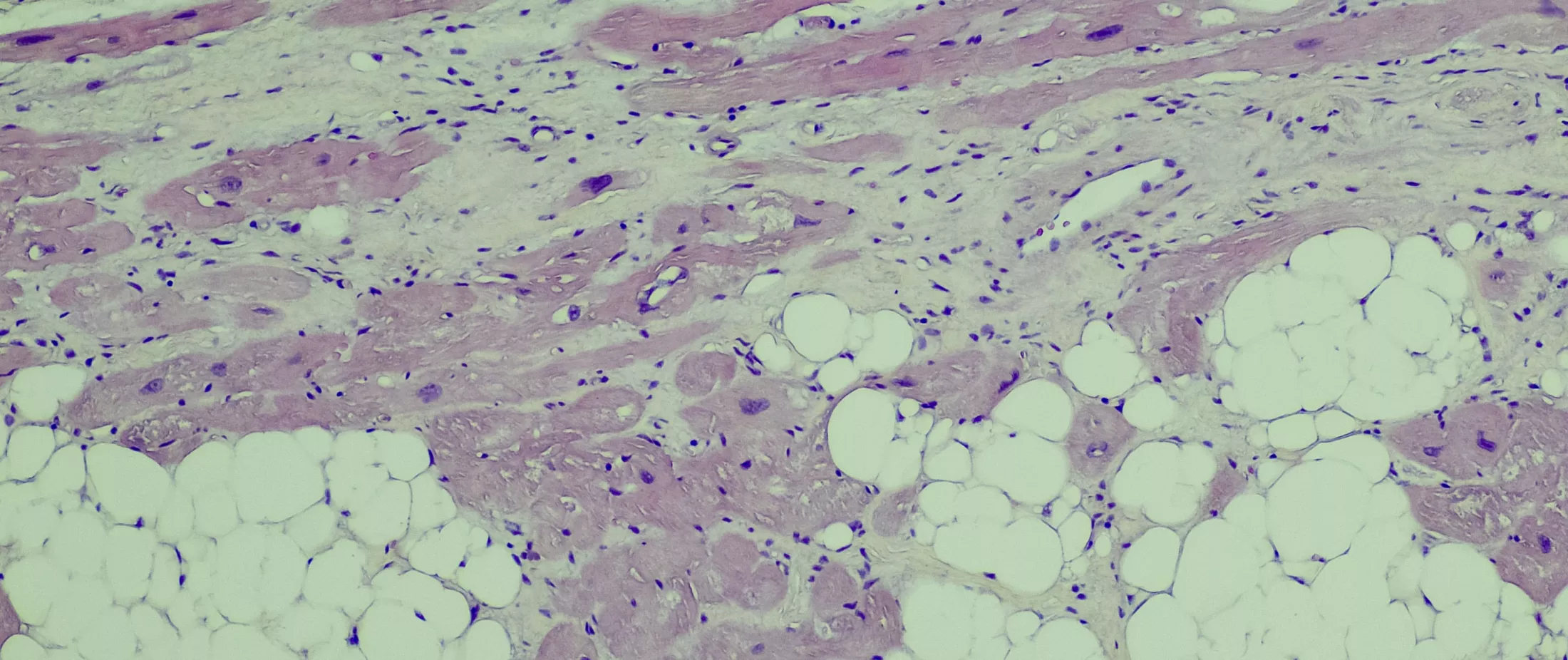About Disorders of the Heart, Lungs & Blood Vessels
Certain rare cardiovascular and pulmonary diseases have genetic causes, including genetic mutations that can be transmitted from a parent or ancestor. These can include systemic disorders that affect multiple organs, as well as disorders that primarily affect the heart, lung or blood vessels. Depending on the organs affected and the types of associated defects, if undiagnosed or left untreated, these rare disorders can sometimes cause life-threatening complications or lead to heart or lung failure and/or bleeding or rupture of the blood vessels.
Certain rare genetic conditions can lead to damage or weakening of the walls of the aorta, the main artery carrying oxygen-rich blood to your body. Some of these familial aortopathies, such as Loeys-Dietz syndrome, Marfan syndrome and Ehlers-Danlos syndrome, affect the connective tissue of the heart, aorta and other blood vessels or organs and can be associated with an increased risk of developing an aortic dissection and aneurysms. These conditions carry an increased risk for a life-threatening aortic rupture. There are also rare genetic syndromes associated with vascular malformations, such as hereditary hemorrhagic telangiectasia or Osler-Weber-Rendu disease, which can lead to abnormal blood vessel formation, including multiple arteriovenous malformations (AVMs) in several areas of the body, such as the lungs, brain, intestines, liver, nose and skin.
Inherited arrhythmia disorders are a group of rare genetic conditions that are associated with an abnormal heart rhythm and an increased risk of sudden cardiac death in young people. Inherited cardiomyopathy disorders, such as hypertrophic, restrictive and familial dilated cardiomyopathy, are a group of genetic diseases of the heart muscle that can lead to heart dysfunction and/or failure and represent another major cause of morbidity and mortality if undiagnosed and/or left untreated. A rare form of restrictive cardiomyopathy includes cardiac amyloidosis, which can result from a rare genetic type of amyloidosis and lead to an abnormal deposition of amyloid proteins in the heart tissue. It can cause slowly progressive cardiac disease in elderly individuals, but it can also be seen in young people and can result in stiffening of the heart muscle and heart failure.
Rare congenital heart diseases represent a group of conditions associated with abnormalities of the structure of the heart and blood vessels that are present at birth. They can include defects involving the walls or valves of the heart, such as being born with tetralogy of Fallot (ventricular septal defect, pulmonary valve stenosis, right ventricular hypertrophy and overriding aorta) or an aortic valve with one or two cusps instead of three which can impair blood flow from the heart to the rest of the body. These conditions can occur individually or as part of other rare conditions, such as in 22q11.2 deletion (DiGeorge, velocardiofacial) Syndrome, and Williams Syndrome due to 7q11.23 deletion.
Rare genetic pulmonary disorders can cause significant breathing problems, such as cystic fibrosis, where the lungs and digestive system can get clogged with thick mucus; primary ciliary dyskinesia, which causes dysfunction of the cilia in the respiratory tract; and inherited interstitial lung disease, which causes scarring of the lung tissue. Other rare disorders, such as cardiac and pulmonary sarcoidosis (a multisystem granulomatous disorder), can lead to inflammation of the heart and lungs.
Advanced Screening, Diagnostics & Treatments
Our multidisciplinary team of world-renowned experts specializes in the prevention, early detection and treatment of rare disorders of the heart, lungs and blood vessels. We offer comprehensive, personalized care focused on preserving heart, lung and blood vessel function and optimizing health and quality of life. We utilize the latest and most advanced diagnostics including state-of-the-art cardiac magnetic resonance imaging (MRI) and other noninvasive cardiovascular diagnostic techniques, as well as genetic testing using next-generation sequencing.
We offer genetic counseling as well as a full range of personalized and targeted treatments, from symptomatic and supportive options to early management of complications. We provide novel, minimally invasive solutions, including the latest catheter-based techniques and robotic surgery, as well as the latest pacemaker and implantable cardioverter defibrillators (ICDs). For patients with end-stage heart or lung disease, we are leaders in heart and lung transplantation with among the highest survival rates in the nation.
We’re ranked in the top 1% of all hospitals in the nation for cardiology, heart and vascular surgery and pulmonology and lung surgery, according to U.S. News & World Report.

Learn More About Disorders of the Heart, Lungs & Blood Vessels
Receiving a diagnosis of a disorder of the heart, lungs and blood vessels, or being at risk for or suspected of having one, can feel overwhelming, but learning more about the diagnosis can help you navigate treatment and care. Visit the links below to learn more about some of the different types of rare disorders, their causes, and associated symptoms as well as screening and treatment options. This list includes a selection of disorders of the heart, lungs and blood vessels. Schedule a consultation with us for diagnosis and treatment options for these or any other rare conditions.
Aortic Aneurysms & Dissections
Cardiomyopathies
Congenital Heart Disease
Heart Rhythm Abnormalities
Vascular Malformations
Pulmonary Disorders
Cardiac Amyloidosis Program
Cardiac Sarcoidosis Program
Center for CardioGenetics
Paul Koors, MD, Aortic Clinic
The Pediatric Heart Center at CHAM
Image courtesy Positive Exposure in collaboration with the Klippel Trenaunay Support Group.



